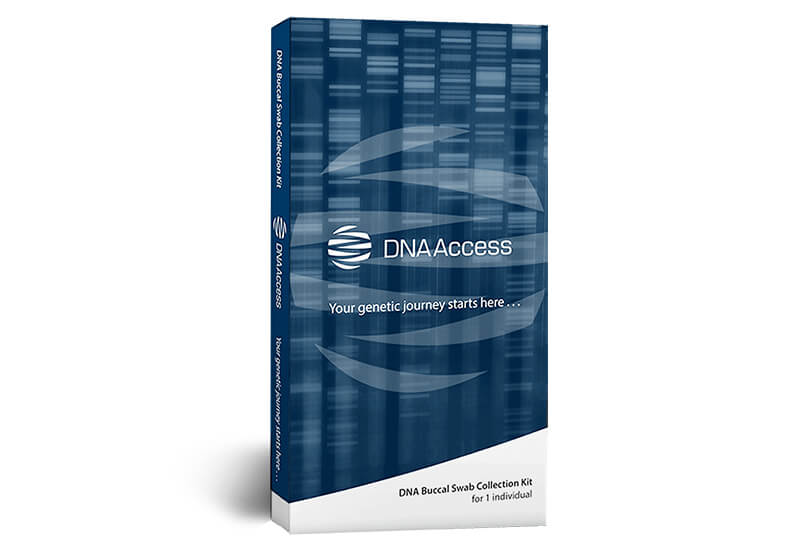Caffeine Sensitivity DNA Test
$149.00
Studies show that people have different sensitivities to caffeine. One of the major determinants of caffeine sensitivity is the primary caffeine metabolizer, cytochrome P450 1A2. Variations in the CYP1A2 gene determine whether an individual is a fast or slow caffeine metabolizer. Slow metabolizers take longer to clear caffeine from the body and have an increased risk of heart problems and high blood pressure.
Description
What is Caffeine?
Caffeine is the most commonly used drug in the world. Caffeine prevents the normal binding of adenosine to cellular receptors, thereby inhibiting the reduction of nerve cell activity usually achieved by adenosine binding. Instead, the binding of caffeine to these receptors increases nerve cell activity, stimulating the pituitary gland to release hormones and the adrenal glands to produce adrenaline. This adrenaline increases alertness, heart rate and blood pressure, and the liver releases more sugar into the bloodstream for extra energy. The consumption of caffeine also increases dopamine levels. Dopamine is the “feel good” neurotransmitter that activates pleasure centers in certain parts of the brain. This increased dopamine is likely to contribute to caffeine addiction, in a similar way to the addictive effects of other drugs, such as cocaine.
More than 90% of adults in developed countries consume caffeine regularly, predominantly in the form of coffee or tea. Caffeine is generally recognized as safe, but heavy caffeine use can result in unpleasant side effects such as insomnia, headaches, irritability and nervousness. Heavy caffeine users often become dependent on the drug and can develop a tolerance to caffeine; hence require increasing amounts to obtain the same desired effects.
TURNAROUND TIME
SAMPLE TYPE
AGE REQUIREMENT
GENDER
Test Details
Caffeine and Heart Attacks
The primary caffeine metabollizer is cytochrome P450 1A2, encoded by the CYP1A2 gene. Variations in the CYP1A2 gene determine whether an individual is a fast or slow caffeine metabolizer. Slow metabolizers take longer to clear caffeine from the body and have an increased risk of heart problems and high blood pressure. Heart disease is one of the major causes of death for both men and women worldwide. A myocardial infarction, or a heart attack, occurs when the blood flow to a region of the heart is inhibited, resulting in damage to the heart tissue. Heart attacks are often preventable and the risk can be reduced by making lifestyle choices that focus on diet and exercise. One very simple diet change – the reduction or elimination of caffeine – can significantly reduce the risk of heart attacks in individuals that have a slow caffeine metabolism.
What is Cytochrome P450 1A2?
Cytochrome P450 1A2 is an enzyme involved in drug metabolism. This enzyme is responsible for the breakdown of 95% of the caffeine in the body. Differences in caffeine sensitivity are influenced by two common CYP1A2 alleles. The “fast” metabolizer allele results in increased levels of the CYP1A2 enzyme. Lower levels of the CYP1A2 enzyme are produced in individuals who have the “slow” allele, and these individuals have a slow caffeine metabolism and an increased risk of heart attacks.
How are the CYP1A2 Alleles Inherited?
CYP1A2 is located on an autosome (chromosome 15). Autosomes are inherited in pairs – one from each parent. Individuals can inherit two copies of the same allele (either homozygous “fast” or homozygous “slow”) or one copy of each allele (heterozygous). People with at least one copy of the “slow” allele are slow caffeine metabolizers.
DNA Testing for CYP1A2 Alleles
A simple DNA test can be completed to determine which CYP1A2 alleles an individual has inherited. The variation that distinguishes the “fast” and “slow” alleles occurs in the regulatory region at position -163 and influences the inducibility of the enzyme. The “slow” allele is -163C and the “fast” allele is -163A. The possible genotypes are:
- -163 AA = “Fast” caffeine metabolizer. Coffee consumption does not increase the risk of heart attacks. This person will pass the “fast” allele to all of their children.
- -163 AC = “Slow” caffeine metabolizer. Coffee consumption increases the risk of heart attacks. This person has a 50% chance of passing the “slow” allele to their children and a 50% chance of passing the “fast” allele to their children.
- -163 CC = “Slow” caffeine metabolizer. Coffee consumption increases the risk of heart attacks. This person will pass the “slow” allele to all of their children.
Recommended Links:





